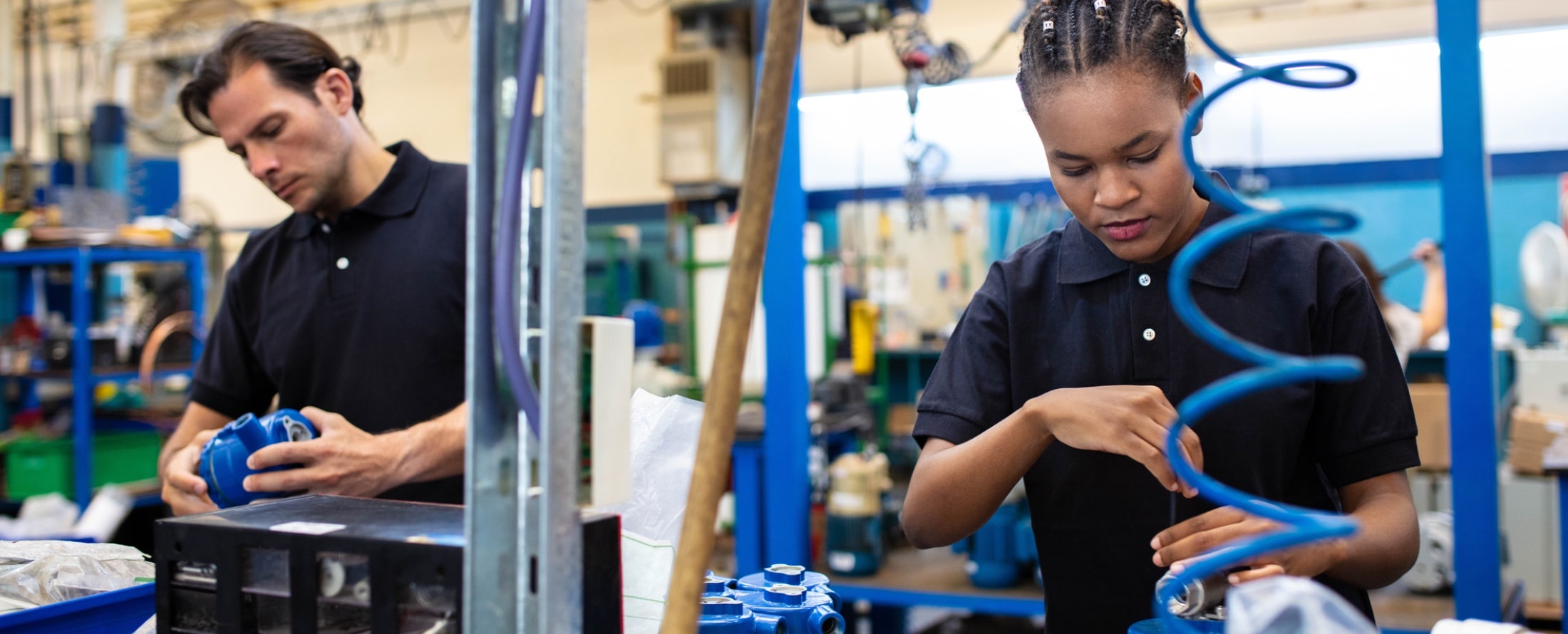The manufacturing industry is experiencing a dramatic shift right now. Manufacturers are integrating technology like big data analytics, machine learning, and industrial IoT into the factory floor. As a result, companies have had to fundamentally rethink their operations.
With these changes, there are new opportunities for manufacturers to utilize technology to boost productivity and their bottom line. Mobile transformation in manufacturing starts with getting the right devices and tools into the hands of every frontline worker.
In a recent IndustryWeek webinar hosted by Samsung, experts weighed in on:
- Challenges faced by frontline workers in manufacturing
- Benefits of mobile technology for manufacturing workers
- How enhanced communication increases resilience, efficiency and safety
The panelists included:
- Kevin Eaton – Head of Manufacturing Solutions and Business Development, Samsung
- Lloyd Johnson – Director of Mobility Business Sales, Samsung
- Marieke Wijtkamp – SVP of Product, Librestream Technologies
- John Keating – Head of Partners & Strategic Alliances, Beekeeper
Here are the key points of the discussion:
Digital Enablement Empowers Frontline Workers

COVID-19 brought more attention to what tools are available for desk-bound vs. deskless workers. While office-based workers had access to a wide variety of communication tools, frontline workers had far less information at their fingertips.
What does a digitally-enabled frontline workforce actually look like?
“Digitally enabled frontlines have real-time access to data and to each other. Their workflows are paperless, their communication is seamless, and they have all the tools and information they need to do their jobs well and to do them safely.”
– Kevin Eaton, Samsung
Post-COVID, manufacturers are looking for solutions that empower their workforce with more data and greater access to the knowledge networks within their company.
A Disengaged and Disconnected Workforce Is Costly
One study found that only 24% of global manufacturers have implemented smart manufacturing initiatives that integrate physical and digital systems. The vast majority of frontline workers are still disconnected and disengaged, which leads to tremendous inefficiencies:
- Frontline workers waste an average of 3 hours each week looking for information
- Managers waste time coordinating between their teams and corporate HQ
- Missed productivity, safety, and turnover all hurt the company’s bottom line
Overcoming these inefficiencies and starting the process of digitization in manufacturing requires both hardware and software solutions. Tools like Samsung’s ruggedized devices and Beekeeper’s mobile platform are designed specifically with frontline workers in mind.
Knowledge Loss Is a Critical Issue
One of the biggest challenges facing manufacturing is the knowledge loss that accompanies high turnover and skill shortage. This has led companies to seek out tools that can bridge the knowledge gap and allow new hires to learn necessary skills more efficiently.
“Digital tools, whether it’s being able to access remote experts via video or on-the-job training with digital work instructions, are essential to expedite onboarding and scale the shrinking pool of experts.”
– Marieke Wijtkamp, Librestream Technologies
Ensuring that frontline workers have more opportunities to access information and learn from experts also leads to a safer workplace. With mobile communication tools, companies can distribute safety guidelines, demonstrate safety techniques, and report incidents more easily.
Mobile Technology Gives Manufacturers a Competitive Edge
At Beekeeper, we’ve seen how mobile tools solve communication challenges for manufacturers and create a connected, engaged workforce.
With Beekeeper, organizations can overcome operational challenges to:
- Enable communication across multilingual teams
- Digitize paperwork and schedules
- Build strong knowledge networks and facilitate shift handover
- Encourage cross-department collaboration
What about companies that don’t allow devices on the factory floor? Here’s what Beekeeper’s John Keating had to say:
“Setting up time before workers go on the factory floor and after they depart can be used specifically to document shift notes, access communication, complete in-bound and out-bound activities. As long as that time is baked into the schedule, it still allows the benefits of mobile technology to be leveraged.”







